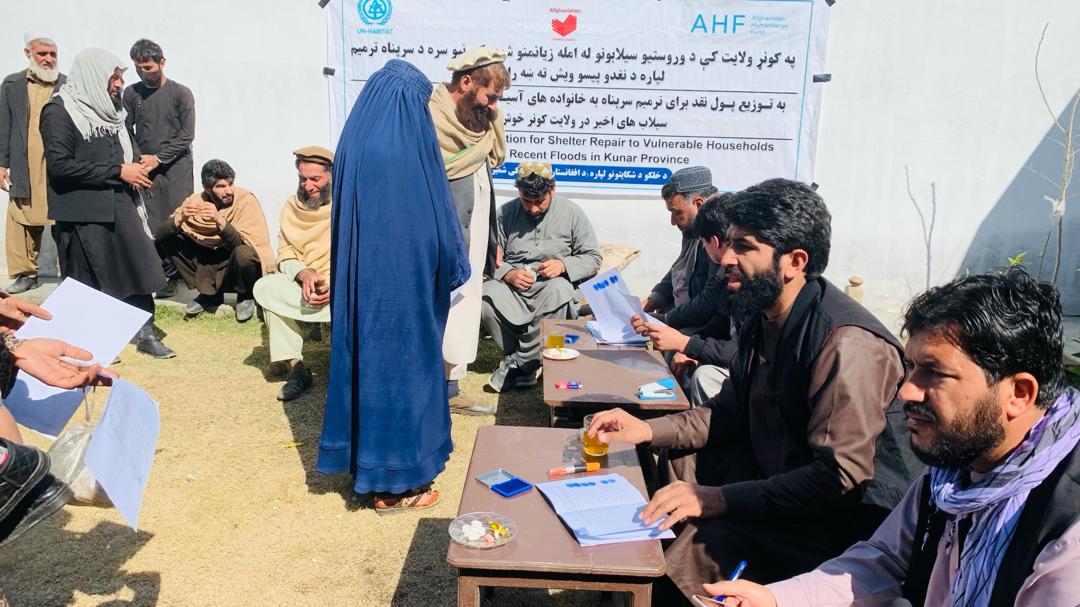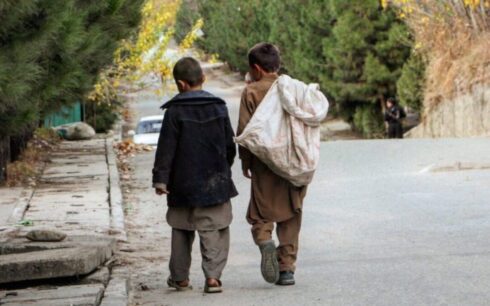KABUL, Afghanistan — A new UN report released by the Gender in Humanitarian Action (GiHA) Working Group and the Humanitarian Access Working Group (HAWG) details the operational challenges that Afghan and international aid organizations face under increasing restrictions on women imposed by the Taliban.
This survey, the ninth of its kind, tracks trends since the Taliban’s ban on Afghan women working for NGOs in December 2022, which was extended to the UN in April 2023, as well as additional restrictions imposed by the Taliban’s new morality law.
The survey has covered 142 respondent organizations , including national NGOs (NNGOs), international NGOs (INGOs), civil society organizations (CSOs) and UN agencies, delivering assistance under both the humanitarian and basic human needs sectors.
The results spotlight both the ongoing humanitarian efforts and the formidable barriers posed by Taliban policies, particularly regarding women’s participation in humanitarian operations.
Key findings: Women’s participation and organizational operations
Operational status: Among respondents, 32% reported full operation with male and female staff, while 43% reported partial operation with both genders. However, 15% stated they were only able to operate with male staff, largely because 72% of organizations allow only men to work in the office. Women’s participation in offices is limited to certain provinces and field roles.
New adjustments for women staff: Organizations have implemented measures to continue working with Afghan women, despite restrictive policies. Adjustments include establishing separate working spaces (55% of organizations), offering financial incentives for mahrams (60%), and organizing gender-segregated distribution spaces or days (86%).
Nevertheless, 27% of respondents reported losing women staff due to Taliban decrees, with the “Promotion of Virtue” law further impacting women’s workplace participation.
Operational challenges under Taliban policies
According to the report, the Taliban’s new law, known as the Promotion of Virtue and Prevention of Vice law, has compounded challenges for Afghan women working in humanitarian roles:
Travel and safety concerns: The report says that women are now required to travel with a mahram to work, a restriction that affects 23% of respondents, and in certain provinces, women are no longer able to report to offices or field sites at all (22%).
Reports of increased anxiety and safety concerns were recorded for both male and female staff, with 34% of respondents citing these issues.
Restricted access to information and resources: The report says that Taliban-imposed restrictions have created barriers to communication and collaboration, with 62% of organizations reporting difficulty in maintaining effective communication due to women working remotely.
Additionally, 49% of organizations stated that women lack access to crucial humanitarian response information, assessments, and protective services, the report says.
Sectors most impacted by restrictions
According to the report, sectors most affected include those that rely heavily on female staff and community engagement:
Health, education, and nutrition: The report finds that health services remain the most authorized sector, with 37% of organizations securing local permissions for women’s involvement. Education and food security also received partial authorizations, though the restrictions on gender-based violence services, child protection, and legal aid for women were more pronounced, limiting women’s participation.
Geographic variations: The report says that restrictions on women’s mobility and access are applied inconsistently across provinces, with Kandahar, Nangarhar, Kabul, and Herat reported as highly affected areas. Challenges in rural and urban areas vary, with restrictions enforced more stringently in rural regions.
Negotiations and temporary exemptions
To maintain services, organizations report ongoing negotiations with Taliban officials to secure temporary exemptions for Afghan women:
Conditional arrangements: The report says that nearly half (45%) of respondents noted that securing women’s participation often requires agreeing to Taliban-set conditions, such as adhering to strict mahram policies and involving Taliban officials in program oversight. Some organizations also reported that they must agree to allow Taliban officials to monitor and, in some cases, participate in the implementation of their programs.
Short-term approvals: The report shows that the temporary nature of these permissions is a recurring challenge, with 43% of organizations reporting that authorizations were granted only for specific activities. Short-term project funding further complicates the ability to maintain women’s involvement in humanitarian efforts.
Women’s access to humanitarian services at risk
The report says that the Taliban’s policies are not only impacting the operational aspects but are also diminishing Afghan women’s ability to access vital services:
Barriers to humanitarian assistance: Almost half of the surveyed organizations indicated that women were unable to access essential information, protection services, and health assessments, severely restricting their engagement with aid programs. In total, 49% of respondents reported that the Taliban restrictions prevent women from receiving critical protective services and emergency assistance, the report says.
Reduced oversight and monitoring: The report says that organizations face significant challenges in monitoring programs, as 44% of respondents cited Taliban-imposed restrictions as an impediment to conducting regular assessments. Reporting mechanisms, including channels for reporting sexual exploitation or abuse (SEA), have also been limited, with 45% of organizations identifying this as a major concern.
UN agencies and International NGOs less affected than national NGOs
While all organizations face challenges under the Taliban, the survey noted a disparity in impact levels:
NGOs vs. UN agencies: The report says that UN agencies report fewer disruptions due to their greater leverage with Taliban officials and reduced dependence on direct implementation. In contrast, NNGOs and CSOs are more vulnerable to Taliban interference, such as being required to replace women leaders with men or even to change organizational names if they include the word “women.”
The UN report underscores that while humanitarian organizations are adapting, the restrictive environment limits Afghan women’s role in relief operations. Humanitarian efforts remain tenuous, with the report cautioning that the progress achieved in women’s participation could quickly unravel should the Taliban impose further restrictions. The report calls for continued funding and global support to help sustain humanitarian operations, warning that any funding shortfall could endanger Afghan communities reliant on this assistance.
With Afghanistan’s humanitarian crisis far from resolved, the international community faces an urgent need to advocate for Afghan women’s access to work and services amid escalating restrictions by the Taliban.





